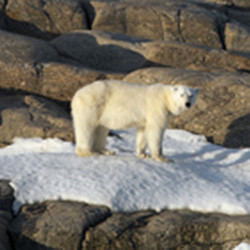Integrating environmental change models
In the 21st century the need to feed a rapidly growing population will place additional pressure on exploited land and water resources. Agriculture and fossil fuel use have led to the emission of greenhouse gases, thereby fuelling climate change and putting further pressure on ecosystems. In addition, rising standards of living may result in dietary changes, leading to an increased demand for land. The project 'Enhancing robustness and model integration for the assessment of global environmental change' (ERMITAGE)(opens in new window) was established to help address these challenges. Aspects of the developed framework included transparency of methodologies, public engagement, relevance of results and applicability to sustainable development challenges. Project partners built on existing platforms and technologies for coupling models by replacing complex computer codes with simpler models that are faster to compute. They also successfully carried out interactive coupling of complex climate change and economic and energy system models. The resulting coupled models were used to study the impacts of climate change on heating and cooling demand. They also enabled analysis of the impact of sea-level rise and the structural changes required in order to comply with a global warming target of 2 degrees Celsius. An additional development was coupling a groundwater recharge module to the land surface model. This allowed carrying out an analysis of the sustainability of groundwater extraction under future climate change. A key finding was that it is economically viable to maintain terrestrial carbon stores in forest ecosystems whilst also increasing agricultural production. This is done to allow some cropland for growing biofuels while also providing for future food demand. In this scenario, the market value of bioenergy was dominated by its value as a carbon sink. Results also showed that impacts on water and crop yields increased substantially for average global temperature rises of more than 2 degrees Celsius above pre-industrial levels. However, some areas received significant impacts to water resources at relatively low levels of average warming. ERMITAGE therefore enabled the analysis of uncertainty from climate simulation through to policy analysis, with particular focus on the sustainability of agriculture, bioenergy and water resources. The project also developed web-based portals to provide access to climate data, models and results. These were designed for a range of users from the public via (ClimaScope)(opens in new window) to policymakers and other scientific users.







